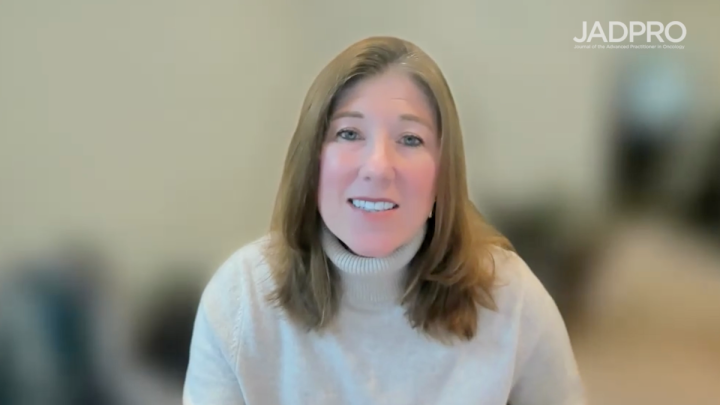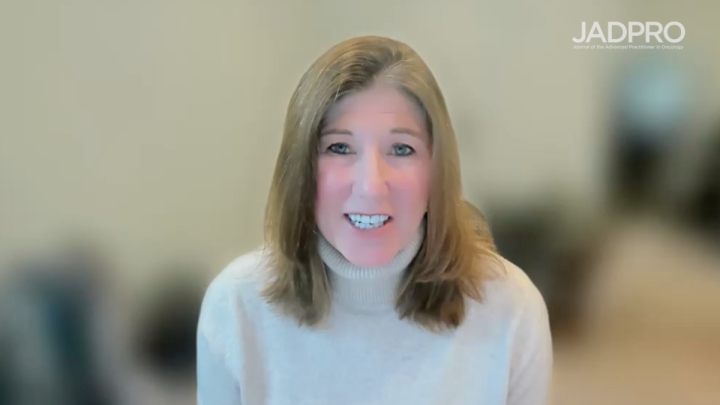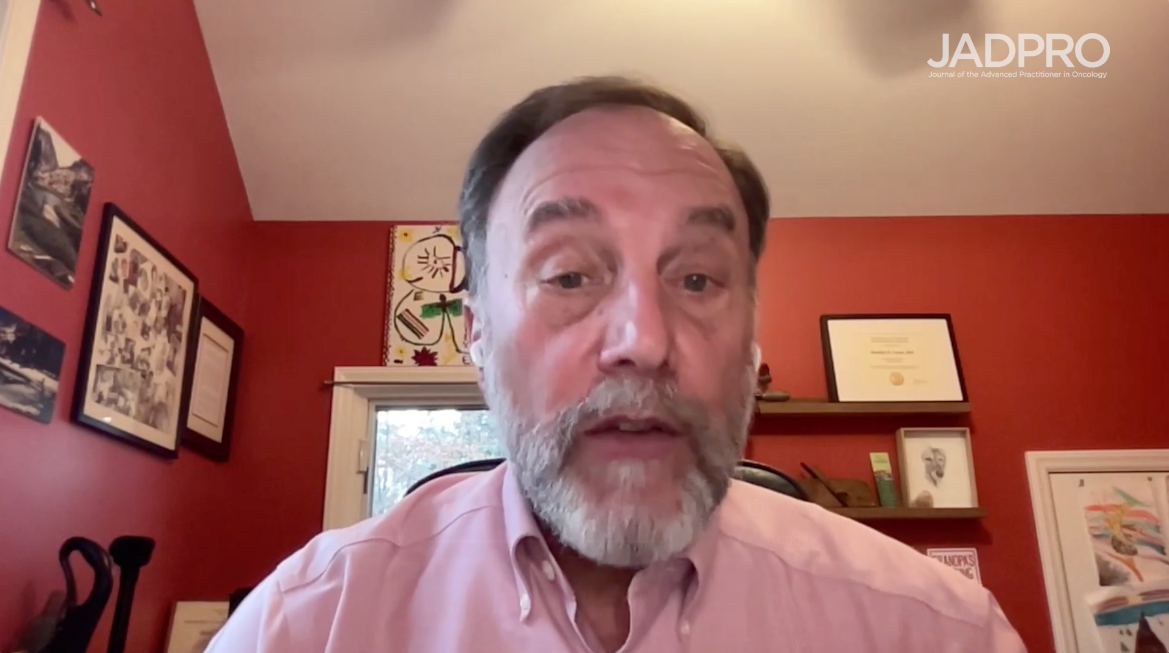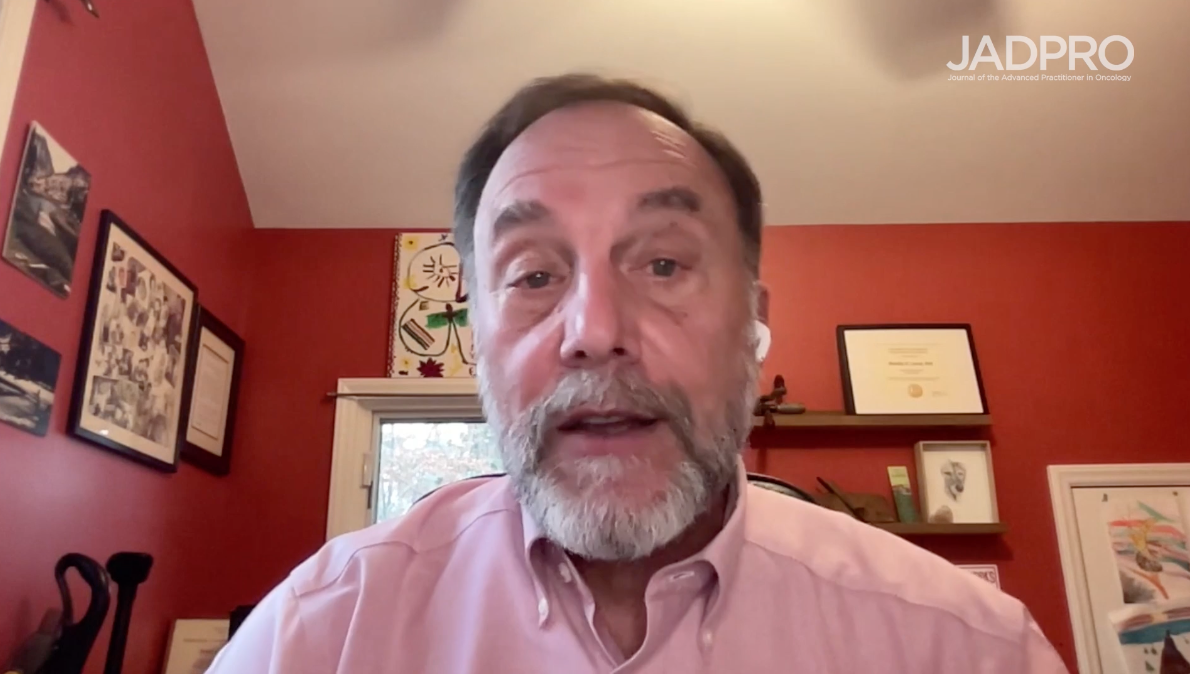Transcript
I'd like to share with you today two abstracts that were presented at the 2024 ASH Conference. These abstracts, I feel, are really important and practice-changing, as they both suggest that there's no longer a role for autologous transplant in mantle cell lymphoma. Historically, the standard of care for patients who were fit and had mantle cell lymphoma was induction chemoimmunotherapy followed by autologous transplant and three years of maintenance rituximab. The first abstract I wanted to discuss is Abstract 623. This abstract presented long-term follow-up from the TRIANGLE study. The TRIANGLE study was a phase III study that looked at the addition of ibrutinib, a BTK inhibitor, to the standard six cycles of chemoimmunotherapy with alternating R-CHOP and R-DHAP, followed by two years of ibrutinib maintenance. Researchers had the option of also doing rituximab maintenance in addition to the ibrutinib maintenance, and about half of the patients had rituximab maintenance as well. Another arm included chemoimmunotherapy followed by autologous transplant and rituximab maintenance, as well as chemoimmunotherapy plus ibrutinib and autologous transplant followed by maintenance. At a median follow-up of 53 months, there was improved failure-free survival and overall survival in the arm with the BTK inhibitor ibrutinib and chemoimmunotherapy. This benefit was not seen in the arms with autologous transplant. In the arm with ibrutinib and rituximab chemoimmunotherapy induction followed by two years of ibrutinib maintenance, the three-year overall survival was about 90%. This is really significant and underscores that there does not seem to be a role for autologous transplant in mantle cell lymphoma any longer. The other study was a late-breaking abstract, LBA 6. This was the ECOG-ACRIN EA4151 study, which looked at the role of transplant in mantle cell lymphoma. Patients received chemoimmunotherapy for induction, followed by an assessment of complete remission and MRD status. They measured MRD to a sensitivity of 10^-6. Patients with complete remission and no evidence of minimal residual disease to this sensitivity were randomized to either autologous transplant plus three years of maintenance rituximab or maintenance rituximab alone. In that study, there was no benefit to autologous transplant in patients with undetectable measurable residual disease following induction therapy. Both of these studies combined provide overwhelming, practice-changing evidence that suggests there is no longer a role for autologous transplant in the treatment of patients with mantle cell lymphoma.











